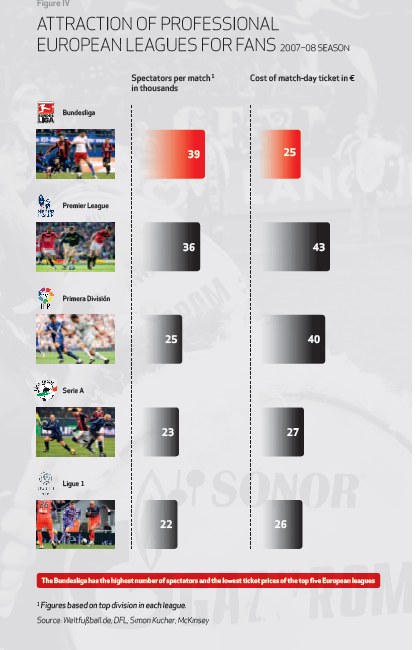
Enthusiastic attendances boost Bundesliga economic activity. Cheaper tickets help too.
A recent study by McKinsey, the financial analysts shows what the Bundesliga brings to the German economy. The numbers are impressive.
The Bundesliga “added value of 5.1 billion euro on a yearly basis, secured employment for 110,000, and provided for 1.5 billion euro net in taxes and fees.”
It adds a whopping 5% to the German GDP, the fifth largest economy in the world. One in every 500 euros come from Bundesliga related economic activity. The taxes and fees generated would be enough to fund the public spending on the five largest German universities. The effect is cumulative as 100 euros added value in professional football generates another 240 euros in other sectors of the German economy.
The Bundesliga (1 and 2) pull in 18 million annual spectators and 15 million on the TV every weekend. Surpassing any other form of leisure activity. The enthusiastic matchday response is the best in the European big leagues with the cheapest priced tickets. Attendances too in comparison to the other big leagues are on the rise.
The FA/ Premiership might possibly be a larger economic force because of the larger TV audience and the largest amount earned in TV and merchandising revenues. However, the amount that of public spending on the Bundesliga, i.e., policing, transport, and stadium infrastructure which amounts to 200 million euros is probably a lot less than what is spent on the FA. The tightly run Bundesliga may in fact be more profitable.